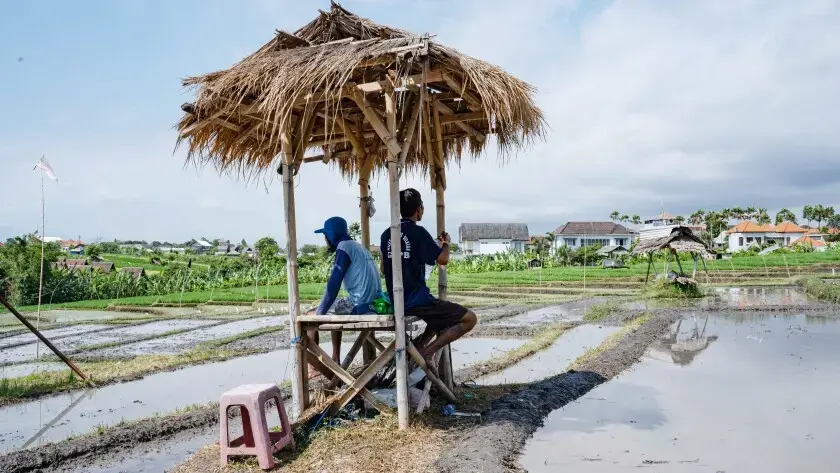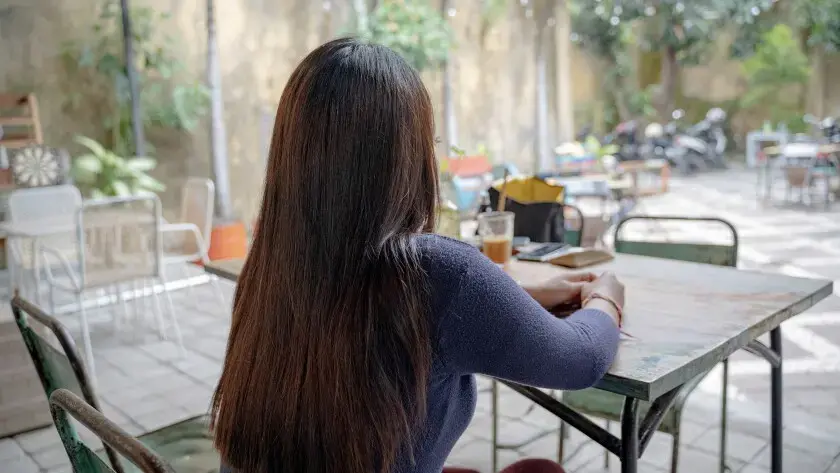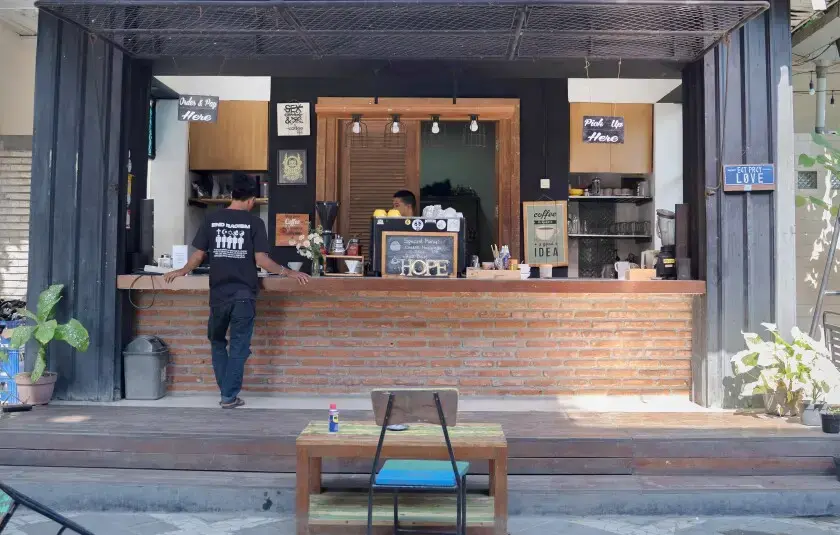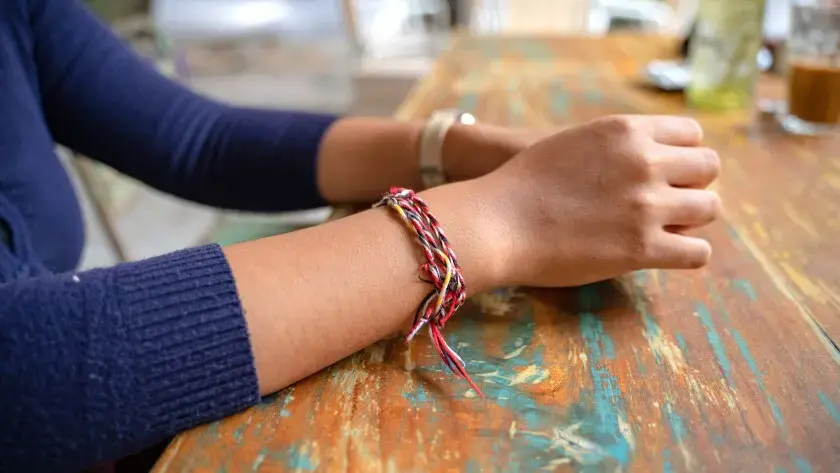Warning: This report contains details about sexual abuse.
BALI, Indonesia — The 16-year-old girl met the man on a messaging app. He offered to take her sightseeing at a lake in his car. For the poor daughter of a trash collector, it was a luxury she couldn’t refuse.
They spent the day viewing centuries-old temples with another teenage girl, but by nightfall the mood turned tense. The man, a 20-year-old named Aldi with unkempt hair and tattoos down his arms, told the girls it was too dark to drive home and pressured them to stay at a motel.
When they arrived, Aldi revealed the car was rented and that he couldn’t pay for food or the room. He suggested the girls set up an online account to earn money having sex with strangers. They resisted. He seized their phones and threatened to beat them. Over the next two months, Aldi held the girls captive, moving them to different motels and forcing them to have sex with up to eight men a day, sometimes without condoms.

As a nonprofit journalism organization, we depend on your support to fund more than 170 reporting projects every year on critical global and local issues. Donate any amount today to become a Pulitzer Center Champion and receive exclusive benefits!
“He would beat me and throw things at me,” said the girl, whose name is being withheld to protect her from further stigmatization. “He once hit me with a broom until it snapped. He threw a beer bottle and hit my head and made me bleed everywhere. It was a nightmare.”
It wasn’t until Aldi forgot to lock the door in a motel one day that the girls were able to escape and reunite with their families. He was arrested last May and sentenced to six years in prison.
The violent ordeal, which unfolded while COVID-19 lockdowns had emptied the island of foreign tourists, highlights the changing nature of sex trafficking in Indonesia’s most famous international destination. For decades, the trade had been fueled by foreign pedophile rings and lone predators — none more infamous than Robert Fiddel Ellis, a 72-year-old Australian who was convicted in 2016 of sexually abusing 30 girls, one as young as 10.
The loss of visitors from abroad, who helped power a tourism sector responsible for half of Bali’s economy and employing nearly one-third of its workforce, has refocused the industry to rely on domestic tourists and locals. The coronavirus has simultaneously created new traffickers like Aldi, a migrant laborer left jobless by the pandemic, who prey on vulnerable girls from desperate families in a sex trade that has often moved beyond the reach of police.
“People only think of tourism when it comes to Bali. They don’t realize how much poverty there is,” said Yohana Agustina Pandhi, a lawyer who once led the Bali police unit for the protection of women and children. “With the economy worsening, more people, including many minors, are going to be lured into prostitution and trapped in human trafficking.”
It’s a trend afflicting countries across the world, according to the United Nations Office on Drugs and Crime, which reported the number of child trafficking victims had tripled in the last 15 years and that COVID-19-induced recessions have made the situation decidedly worse.
Authorities in Bali, an island of 4.3 million residents roughly the size of Delaware, appear unprepared. The arrest and conviction of Aldi was one of only five cases of human trafficking successfully prosecuted by authorities in Bali since 2019. The actual number is believed to be much higher; the 2018 Global Slavery Index estimated there were 1.2 million Indonesians living in modern slavery, be it as laborers, fishermen or sex workers.
The low case count in Bali reflects persistently weak enforcement of the illegal sex trade and its migration to encrypted apps, which has accelerated with the shuttering of red-light districts amid months of lockdowns.
Police say the technology — including apps such as WeChat, Telegram and MiChat — has left them powerless to monitor abuse. Action can usually only be taken if a victim comes forward or someone alleges a crime.
A teenage prostitution ring involving girls as young as 15 was broken up in October after residents of a neighborhood in western Bali reported suspicious men regularly visiting a rented room. Police arrested a 28-year-old woman named Khomsatun Hasanah, who allegedly lured the girls from her home in East Java with promises of jobs at a café in Bali. The girls were held captive for three months and forced to have sex with strangers. Hasanah attracted clients using MiChat, a Singaporean dating app government officials considered banning in 2019 because of its ties to online prostitution. Hasanah told police she turned to human trafficking because the pandemic had left her jobless.
“It’s a struggle proving human trafficking online,” said Kompiang Srinadi, the current head of the women and children protection unit at the Bali Police. “We need the support of the cyber unit [in the capital, Jakarta] if we want to investigate. We just don’t have enough personnel.”
Activists say police can still do more.
Luh Putu Anggreni, a legal counselor at Bali Women’s Legal Aid, said authorities don’t take trafficking as seriously as other crimes because of intrinsic sexism against women and girls. That can result in a lack of empathy when dealing with female victims.
“It’s not uncommon for law enforcement to make sexist comments like, ‘Are you really a victim? Why did you dress like this?’” Anggreni said. “The victims are being stigmatized.”
Once rescued, there’s little government support for rehabilitating survivors of sex trafficking. Most must seek shelter with nonprofit organizations because of the lack of state funds. The Witness and Victim Protection Agency and the Social Affairs Ministry, two state actors responsible for helping victims of violence and trafficking in a country of 270 million people, saw their budgets slashed to $3.7 million in 2020 from $10.3 million the previous year.
At the same time, Bali’s tourist economy is struggling to recover from a devastating 2020 in which it shrank at a rate four and a half times greater than the national economy.
The following year wasn’t much better. Bali reportedly received only 45 international visitors in 2021 because of COVID-19 restrictions compared to over six million in 2019. The lifting of domestic travel last year has brought thousands of Indonesian tourists each weekend, helping to modestly revive the economy. It’s also been enough to help keep prostitution alive, though prices for sex are said to have dropped by half, to between $10 and $30.
The island’s white sand beaches remain largely deserted apart from packs of stray dogs. Despite the lifting of border restrictions in October, foreign tourists are reluctant to undergo a 10-day quarantine to visit the vacation destination. The fast spread of the Omicron variant worldwide has only heightened the uncertainty.
It was in Bali’s western Tabanan district, known more for its breathtaking rice terraces than its holiday resorts, that Aldi’s now 17-year-old victim received the help she needed at a safe house run by a nonprofit for sex abuse victims called Gerasa.
Prior to that, she struggled to adjust to life after being freed. She refused to go to school after classmates bullied her by calling her an “online sex worker” and sharing the MiChat account Aldi forced her to create with lewd pictures.
Krisdiyanti Mayangsari, a counselor at Gerasa, said the girl’s experience is common to many victims who display physical and psychological trauma. “Most of them feel that they don’t belong in this world after what happened to them,” she said. “We tell them that they are precious human beings.”
At Gerasa, the girl received therapy and learned new skills such as eyebrow embroidery, nail art and makeup. The youngest of six children raised in a household where money and food were scarce, she has aspirations of one day becoming a school teacher. Though forever haunted by her abuse, she said she’s striving to make peace with her past to strengthen her well-being.
“I don’t dwell on the past, and I have forgiven him,” she said. “I only think about the future now.”
Special correspondent Renaldi reported from Bali and Times staff writer Pierson from Singapore.
















